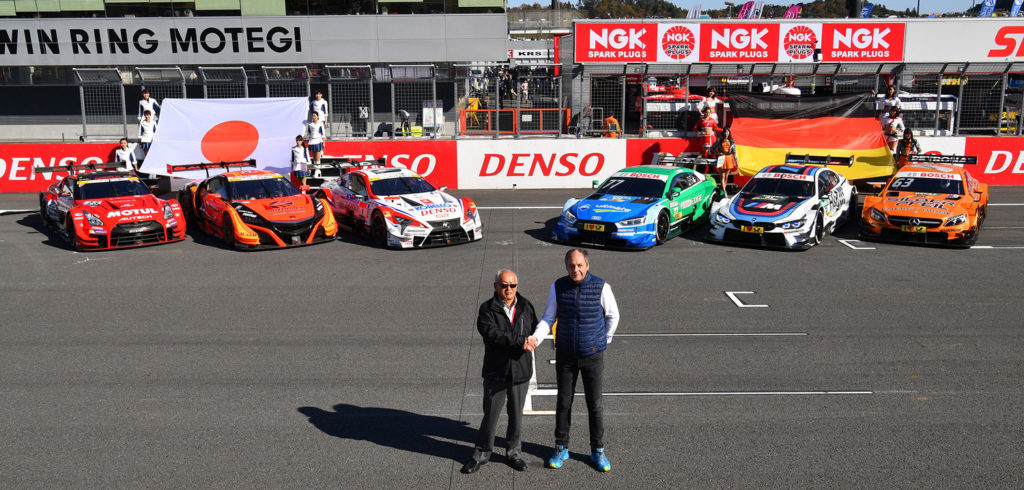Organizers of Germany’s DTM touring car series have confirmed new regulations that will effectively allow it to join forces with the Japanese Super GT Series
The new direction, known as Class One, will come into effect in 2019, with the Super GT Series adopting it a year later in 2020. Some aspects of the regulations will be specific to Super GT due to the endurance format of its races.
Two joint races are planned for the 2019 season, one in Europe and one in Asia, and for these a temporary Balance of Performance will be created to allow the DTM and GT cars to compete with each other.
Full technical details of the Class One regulations are yet to be released but they will be based around the carbon-fiber monocoque with integrated safety cell currently used by the DTM. However, the German series will abandon its current V8 engines for a turbocharged four-cylinder unit of 2.0 liters, increasing power by around 100hp to 620hp.
Front bodywork changes will be required to improve cooling for the turbo engines, while a new rear diffuser and wing design will more closely align the DTM cars to the Super GT entries.
The most important aspect of Class One in the eyes of both DTM and Super GT personnel will be the adoption of a common part concept seen in other touring car series. Plans include standardizing components “in nearly all the areas of the car”, allowing production in Europe and Japan and preventing manufacturers investing in expensive development programs.
Gerhard Berger, chairman of DTM organizing body the ITR, describes the new regulations as a milestone for international motor racing: “These regulations enable manufacturers and teams to participate in spectacular motor racing at reasonable costs on two continents – and thereby to reach many people.”
Berger’s optimism has been matched by Masaaki Bandoh, chairman of Super GT organizer the GTA. “I strongly believe that the joint events will bring new excitement for motorsports fans around the world and both Super GT and DTM will continuously develop together,” he said.
The two categories have been in discussions over joint programs since 2014, with both battling declining manufacturer support. Pressure for Berger to find a way forward increased when Mercedes-Benz announced its withdrawal from the DTM at the end of the 2018 season in favor of a Formula E electric racing program.
The Mercedes withdrawal will leave only Audi and BMW in the DTM and put the two manufacturers under pressure to increase their investment in order to provide more cars and a viable grid. Currently the three manufacturers each field six cars.



